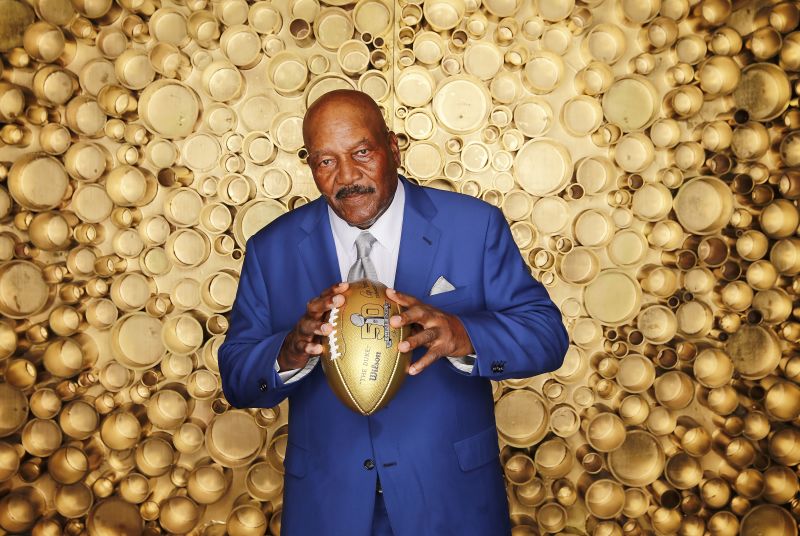Jim Brown: A Legendary Athlete and Activist
Jim Brown, the transcendent athlete-actor-activist who ran roughshod over the NFL and won multiple MVP awards before retiring abruptly at the age of 30 to focus on the civil rights movement and a career in Hollywood, died at the age of 87, his former team and his widow said on Friday, May 19.
A Pioneering Career in Football
Brown, a running back, led the NFL in rushing eight times in nine seasons and helped lead the Cleveland Browns to a championship in 1964. His athletic prowess made him a household name and a symbol of excellence in football.
Early Retirement for a Greater Cause
In a surprising move, he announced his retirement just two years later while filming the World War II film “The Dirty Dozen.” This decision shocked sports fans at the height of his career and signified his commitment to pursuing other passions. Over the following years, Brown appeared in more than 50 film and television projects.
A Committed Civil Rights Activist
Beyond his contributions to sports and cinema, Jim Brown also made his mark as a civil rights activist, working diligently with inner-city gang members and prison inmates. His advocacy highlighted the important intersection between sports, race, and community service.
Legacy and Impact
“One of the greatest players in NFL history, a true pioneer and activist,” the NFL tweeted. “Jim Brown’s legacy will live on forever.”
Highlights from Brown’s Life
- Brown was a multisport star at Syracuse University, excelling in basketball, football, lacrosse, and track.
- He rushed for an NFL-record 237 yards in 1957, showcasing his exceptional skills on the field.
- Brown went on to become a nine-time Pro Bowl selection, finishing his career with 12,312 rushing yards and 2,499 receiving yards.
Philanthropic Efforts and Gatherings
Throughout his life, Jim Brown remained passionate about social issues. In 1966, while filming “The Dirty Dozen,” he announced his retirement from professional football to focus on the National Negro Industrial and Economic Union project, which aimed to enhance the economic opportunities for African Americans. This organization, which later became the Black Economic Union, emphasized the need for Black entrepreneurship.
Moreover, Brown showed unwavering support for social justice, meeting with prominent figures like boxer Muhammad Ali, and participating in various initiatives aimed at reducing gang violence and promoting youthful engagement in communities.
Conclusion
Jim Brown’s incredible achievements on the football field and tireless efforts in advocating for civil rights have left an indelible mark on American culture. His legacy continues to inspire future generations to strive for greatness both in sports and in social justice.




